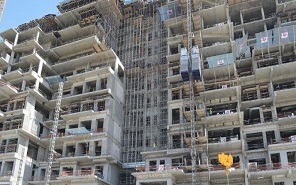There are a number of expectations one has from a new home and not without a reason. It is one of the biggest investments that a family can make and it has definitely some serious living up to do. The needs of every family differs and while there are some common grounds as far as home hunting is considered, there are often certain nuances to be looked into. Thankfully, developers nowadays are actually paying a lot of attention to what that buyers want and it is no secret that the lifestyle of the home buyers have changed considerably in the last half a decade or so.
Moreover, most of the first time home buyers are roughly around the age of 35 on an average and families are no longer waiting till their retirement to get their dream home. For someone so young to invest in a home, it is only natural that they have a vision about what this new home is going to be like and whether it an apartment or a standalone bungalow, some amenities are always in demand. Here is a look at some of the most basic amenities that one should look for in a residential complex.
- Security: The security of the residential complex should be a top most priority. It is far easier to control the security aspects of one’s own premises when one has a separate house but in a residential complex, one would be living with a number of different families. People are going to walk in and out all the time and the gates also tend to remain open for the greater part of the day. It is impossible to control traffic with people going in and coming out of the different apartments all the time. Hence, the residential complex should have adequate security measures, both in terms of manual security, as in recruitment of security personnel, as well as the installation of CCTV cameras and video phone. In case of any mishap or break in, footage should always be available to find out how it happened and how it can be improved in the future.
- Open Space: Since residential complexes will mostly comprise of flats, it is quite difficult to find some open space, except apart from the balcony that comes with it. There is no chance of creating a garden of one’s own or a have a backyard as one could in one’s own premises. Hence, it is important to ensure that there is some open space inside the complex in the manner of parks and gardens, or playground for the children. It is important for the children in the family to be able to have fun and run around, without having to play in the streets, as is the case with many children who are forced to do so because of lack of adequate space in very urban areas. Moreover, the elderly in the family also need time and space to walk and have some exercise and this is just not possible if the complex only has good looking buildings and nothing else. Modern residential complexes are being built with about 20% to 50% of open space on an average.
- Common areas: Since, one would be sharing the premises of the residential complex with a lot of other families, it is important that the complex has some clear rules about how the common areas are going to be used. Most committees are amiable enough and there are often no problems but at times, issues do crop up when the residents are not following the rules. Try to find out from the developer how will the building be maintained after the construction has been completed and other related issues. Some big developers keep the maintenance aspect in their own hands while others leave it to the residents of the complex. Thinking about the future of the complex is as important as thinking about the present.
- Fire Alarm: Apart from the basic security features, it is also important to find out about other safety features in the building and the fire alarm is one of them. One should find out whether the residential complex has complied with all the rules and regulations pertaining to fire safety, whether all the preventive measures are in place, and whether they are regularly maintained or not. It should also be checked from time to time whether all the emergency exits are working properly and whether all the residents of the building will come together for its maintenance. Residents are also looking for additional safety features like earthquake resistant buildings.
- Connectivity: The residential complex should be situated in such a position that it should have adequate transportation facilities and should have good connectivity to various parts of the city. True, that a family might own a car and the complex would also provide adequate parking facility. However, the car might break down at times and not all the families own private vehicles. Residential complexes are large and often take up too much space, which is why it is hard to come by a residential complex in a very densely populated area. Ideally, the complex should be situated in a location which is peaceful and quiet and yet should have good transportation by which it is easier to get access to schools, colleges, banks, markets, hospitals and entertainment zones. The local amenities that one enjoys are often much more important than the amenities that one enjoys inside the complex.
Apart from the above mentioned facilities, the modern residential complexes come with a number of other facilities like elevators, lounges, rooftop gardens, swimming pools and gymnasiums and while these are not absolutely necessary, it is good to have some of them if one is aiming for a particular lifestyle and degree of comfort. Try to keep these factors as much as possible in mind before you sign on the dotted line while purchasing your new home.




